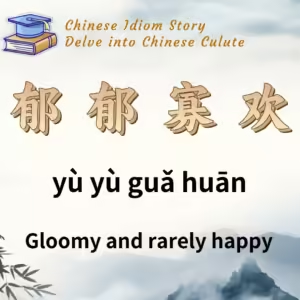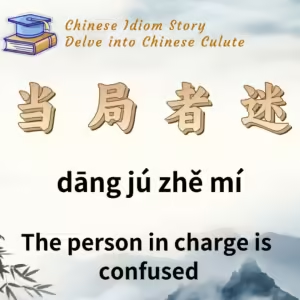
Chinese Idiom: 一夫当关,万夫莫开 (Yi Fu Dang Guan, Wan Fu Mo Kai)
English Translation: A Single Man Guards the Pass, Ten Thousand Cannot Open
pīn yīn: yī fū dāng guān, wàn fū mò kāi
Idiom Meaning: This idiom metaphorically describes a strategically significant and easily defensible position. “One” and “ten thousand” are approximate numbers, not exact; “one” signifies few, and “ten thousand” signifies many. “夫” means person.
Historical Source: Tang Dynasty poet Li Bai’s “The Hard Road to Shu.”
Idiom Story: During the early years of Emperor Xuanzong of Tang’s Tianbao period (742-744 AD), Li Bai was in Chang’an. This period marked the transition from a time when Emperor Xuanzong was diligent and effective to a time of decline characterized by indulgence and neglect of state affairs. The government was corrupt, and treacherous officials held power, creating sharp social conflicts. Li Bai, having personally experienced this rapid shift from prosperity to decline, sensed an impending crisis.
On one occasion, as he was sending a friend off to Shu (modern-day Sichuan), he wrote the poem “The Hard Road to Shu,” in which he expressed his concerns and premonitions. The poem can be roughly divided into four parts. The first part, from “Alas!” to “Monkeys and apes attempt to climb,” vividly describes the difficulties of the road to Shu through historical legends and myths. The second part, from “The winding paths of green mud” to “Why come here?”, further depicts the picturesque yet perilous mountains of Shu based on his own experiences. The third part, from “Sword Pavilion stands rugged and towering” to “Slaughtering people like hemp,” hints at his underlying worries through the dangerous terrain of the Shu mountains. The final four lines predict turmoil in Shu and advise his friend to return home early.
The third part of the poem is:
The Sword Pavilion stands rugged and towering,
A single man guards the pass, ten thousand cannot open.
If the guardian is not a trusted person,
He may turn into a wolf or jackal.
In the morning, beware of tigers,
In the evening, beware of long snakes.
They gnash their teeth and drink blood,
Killing people like cutting hemp.
Sword Pavilion (Jianmen) is a place name in the north of modern-day Jiange County, Sichuan Province. “Rugged and towering” describes the high and steep mountains. “A single man guards the pass” means that a single person can defend the pass. “Ten thousand cannot open” means that even ten thousand men cannot break through. “If the guardian is not a trusted person” means if the person guarding the pass is not trustworthy. Wolves, jackals, tigers, and long snakes all refer to rebels.
The gist of this part of the poem is: The Sword Pavilion is exceedingly formidable and steep; as long as one person guards the pass, ten thousand cannot open it. If the person guarding the pass is not trustworthy, they may turn into cruel rebels. These cruel beings, symbolized by wolves, tigers, and long snakes, gnash their teeth and drink blood, causing calamities for the common people, with the dead as numerous as cut hemp.
This phrase “A single man guards the pass, ten thousand cannot open” was later generalized into an idiom.






